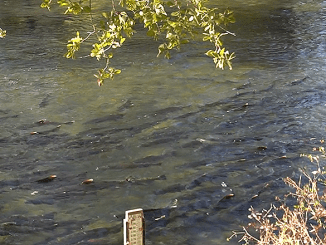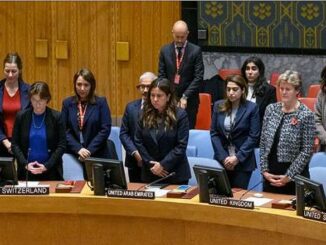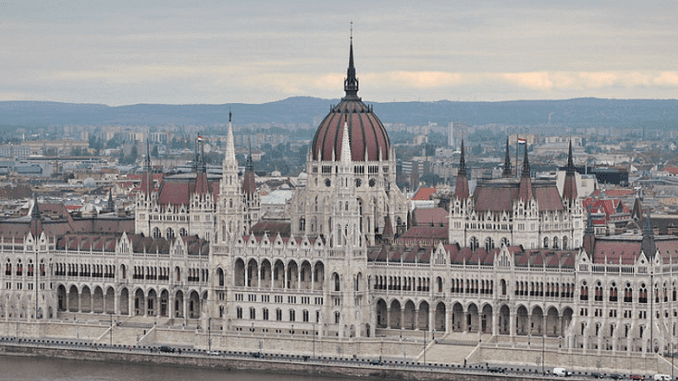
BRUSSELS, Belgium, October 27, 2022 (ENS) – The European Commission Wednesday proposed stronger rules on ambient air, surface and groundwater pollutants, and the treatment of urban wastewater.
All the new rules provide a clear return on investment thanks to benefits in health, energy savings, food production, industry, and biodiversity, the Commission said.
Nearly 300,000 Europeans die prematurely each year due to air pollution, says the Commission. If approved, the new rules would reduce deaths resulting from high levels of the main air pollutant, particulate matter PM2.5. These levels have exceeded World Health Organization guidelines by more than 75 percent in 10 years.
Executive Vice-President for the European Green Deal, Frans Timmermans of the Netherlands, said, “Each year, hundreds of thousands Europeans die prematurely and many more suffer from heart and lung diseases or pollution-induced cancers. The longer we wait to reduce this pollution, the higher the costs to society.”
“By 2050, we want our environment to be free of harmful pollutants. That means we need to step up action today,” Timmermans urged. “Our proposals to further reduce water and air pollution are a crucial piece of that puzzle.”
The Commission proposes to both restrict allowed levels of pollutants and to improve implementation to ensure pollution reduction goals are more often reached in practice.
Today’s proposals are a key advance for the European Green Deal’s goal of having an environment free of harmful pollution by 2050.
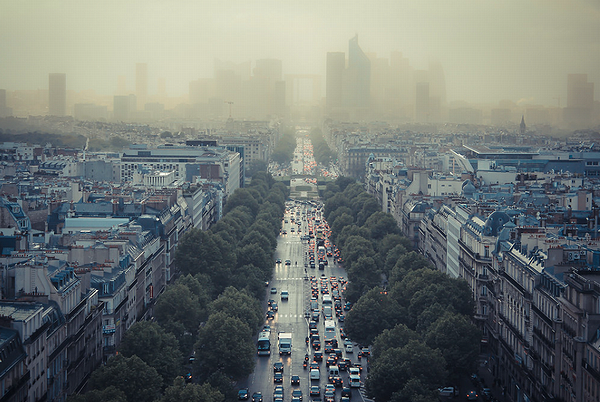
They also respond to specific demands of the Conference on the Future of Europe, a citizen-led series of debates and discussions that ran from April 2021 to May 2022. People from across Europe were able to share their ideas and help shape our common future. Its conclusions are presented in a final report.
Commissioner for the Environment, Oceans and Fisheries, Virginijus Sinkevičius of Lithuania, said, “The quality of the air we breathe and the water we use is fundamental for our lives and the future of our societies. Polluted air and water harm our health and our economy and the environment, affecting the vulnerable most of all. It is therefore our duty to clean up air and water for our own and future generations.”
“The cost of inaction is far greater than the cost of prevention,” Sinkevičius said. That is why the Commission is acting now to ensure coordinated action across the Union to better tackle pollution at source – locally and cross-border.”
Critics Have Their Say
But the European Environmental Bureau, the largest network of environmental citizens’ organizations in Europe with 180 member groups in 38 countries, says the European Commission Work Programme for 2023, released on October 18, “scraps bold plans to protect Europeans from hazardous chemicals and transition to a nature-positive economy.”
The EEB objects that, “Pressure from the powerful chemical industry and farming lobbies pushed EU top-level officials to betray their own commitments to deliver several key laws by 2023. The last work program issued by the College of Commissioners chaired by Ursula von der Leyen ahead of the 2024 European elections leaves a legacy of thwarted ambitions.”
Patrick ten Brink, the EEB’s Secretary General, said, “EU officials’ hard work in delivering a transformative Green Deal legislative roadmap is bogged down by last-minute political decisions coming from top-level Commissioners. This unjustified self-sabotage only responds to political and industry pressure.”
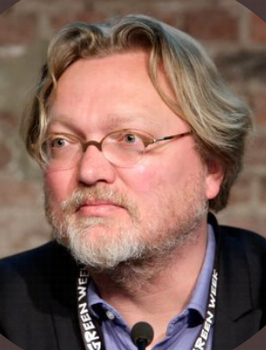
“People are asking for bold policies to speed up the pace of change towards a clean, resilient and toxic-free future. By prioritizing profits over people and the environment, the EU risks losing citizens’ trust,” ten Brink said.
The EEB cautions that the delays and omissions in the European Commission’s 2023 Work Programme undermines its Green Deal and zero pollution ambitions.
The Commission’s Work Programme 2023 is set to delay the start of the reform of REACH, the centrepiece of Europe’s regulation of chemicals, by a year to the last quarter of 2023, the EEB warns, saying . “With European Parliament elections in 2024, the delay is effectively game over for the much-needed improvements of chemicals regulation under this Commission.”
“This is a screeching U-turn away from excellent plans for greater environmental and health protections and towards the interests of industrial polluters. They are doing this in the name of helping firms through the energy crisis, but that is just a smokescreen. The sector made excellent profits in the last decade and has generous reserves, while on the other hand, the reforms will take many years to come into force with no short-term impacts on them. This is a major blow to the EU Green Deal,” explains Tatiana Santos, the EEB’s Head of Chemicals Policy.
Commission Goals: Cleaner Air by 2030, Zero Pollution by 2050
But the European Commission argues that the proposed revision of the Ambient Air Quality Directives will set interim 2030 EU air quality standards, aligned more closely with World Health Organization guidelines, while putting the EU on a trajectory to achieve zero air pollution by 2050 at the latest, in sync with climate-neutrality efforts.
To this end, the annual limit value for the main pollutant – fine particulate matter (PM2.5) – is proposed to be cut by more than half.
The new rules will ensure that people suffering health damages from air pollution will have the right to be compensated in the case of a violation of EU air quality rules. They will also have the right to be represented by nongovernmental organizations through collective actions for damage compensation, the Commission argues.
Today’s proposals leave it to national and local authorities to determine the specific measures they would take to meet the standards, the Commission says. At the same time, existing and new EU policies in environment, energy, transport, agriculture, and other fields will make a contribution.
Polluted Air Is More Than a Nuisance, It’s a Lethal Hazard
“Air pollution is the greatest environmental threat to health and a leading cause of chronic diseases, including stroke, cancer and diabetes,” states the Commission. “It is unavoidable for all Europeans and disproportionately affects sensitive and vulnerable social groups.”
Polluted air also harms the environment causing damage to forests, ecosystems and crops.
Today’s proposal will help achieve dramatic improvement in air quality around Europe by 2030, leading to gross annual benefits estimated at €42 billion up to €121 billion in 2030, for less than a €6 billion costs annually, the Commission maintains.
Better, More Cost-effective Treatment of Urban Wastewater
The revised Urban Wastewater Treatment Directive will help Europeans benefit from cleaner rivers, lakes, groundwaters and seas, while making wastewater treatment more cost-effective, according to the Commission.
To make the best possible use of wastewater as a resource, the Commission proposes to aim for energy-neutrality of the sector by 2040, and improve the quality of sludge to allow for more reuse.
Several improvements will support health and environmental protection. These include obligations to recover nutrients from wastewater, new standards for micropollutants and new monitoring requirements for microplastics.
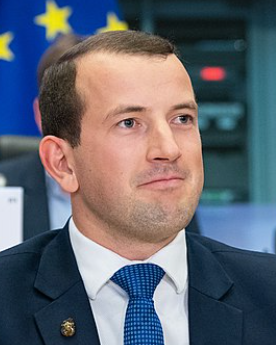
Obligations to treat water will be extended to smaller municipalities with 1,000 inhabitants – from a current obligation for towns with at least 2,000 inhabitants.
To help manage heavy rains, made more frequent by climate change, there is a requirement to establish integrated water management plans in larger cities.
Finally, building upon the Covid-19 experience, the Commission proposes to systematically monitor wastewater for several viruses, including CoV-SARS-19, and anti-microbial resistance.
EU countries will be required to ensure access to sanitation for all, vulnerable and marginalized groups in particular.
As 92 percent of the toxic micro-pollutants found in EU wastewaters come from pharmaceuticals and cosmetics, a new Extended Producer Responsibility scheme will require producers to pay for the cost of removing them.
This is in line with the ‘polluter pays’ principle and it will also incentivize research and innovation into toxic-free products, as well as making financing of wastewater treatment fairer.
The wastewater sector has untapped renewable energy production potential, for example from biogas, the Commission says. The new rules would require EU countries to track industrial pollution at source to increase the possibilities of re-using sludge and treated wastewater, avoiding the loss of resources.
Rules on recovering phosphorus from sludge will support its use to make fertilizer, benefiting food production.
The changes are estimated to increase costs by 3.8 percent to €3.8 billion a year in 2040 for a benefit of over €6.6 billion a year, with a positive cost-benefit ratio in each of the EU Member States.
Protection of Precious Water Against New Pollutants
Based on up-to-date scientific evidence, the Commission is proposing to update lists of water pollutants to be more strictly controlled in surface waters and groundwater.
Twenty-five substances with well-documented problematic effects on nature and human health will be added to the lists.
These include:
- – PFAS, a large group of “forever chemicals” used among others in cookware, clothing and furniture, fire-fighting foam and personal care products;
- – a range of pesticides and pesticide degradation products, such as glyphosate;
- – Bisphenol A, a plasticizer and a component of plastic packaging;
- – some pharmaceuticals used as painkillers and anti-inflammatory drugs, as well as antibiotics.
“The substances and their standards have been selected in a transparent and science-driven process,” the Commission said.
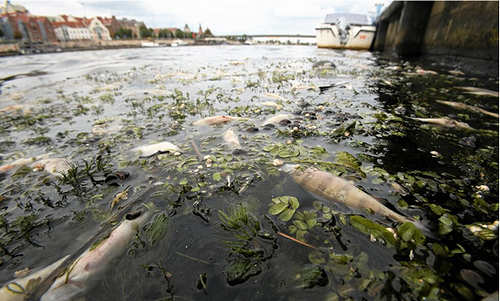
The Commission also proposes mandatory downstream river basin warnings after incidents such as the mass death of fish in the Oder River in eastern Germany on August 12. The mass die-off, which touched off a political fight between Poland and Germany, has been blamed on toxic algae and on industrial pollution. Some 250 tonnes of dead fish were recovered in August from the Oder River, which runs through the two countries.
The new rules recognize the cumulative or combined effects of mixtures, broadening the current focus which is on individual substances solely.
In addition, standards for 16 pollutants already covered by EU rules, including heavy metals and industrial chemicals, will be tightened, and four pollutants that are no longer an EU-wide threat will be removed.
The proposals will now be considered by the European Parliament and the Council in the ordinary legislative procedure. Once adopted, they will take effect progressively, with different targets for 2030, 2040, and 2050 – giving industry and authorities time to adapt and invest where necessary.
Featured image: The Hungarian Parliament Building, the world’s third largest parliament building, is at the mercy of Budapest air pollution that constantly attacks its porous limestone walls, requiring frequent restoration. April 29, 2017 (Photo by Loco Steve)
© 2022, Environment News Service. All rights reserved. Content may be quoted only with proper attribution and a direct link to the original article. Full reproduction is prohibited.

